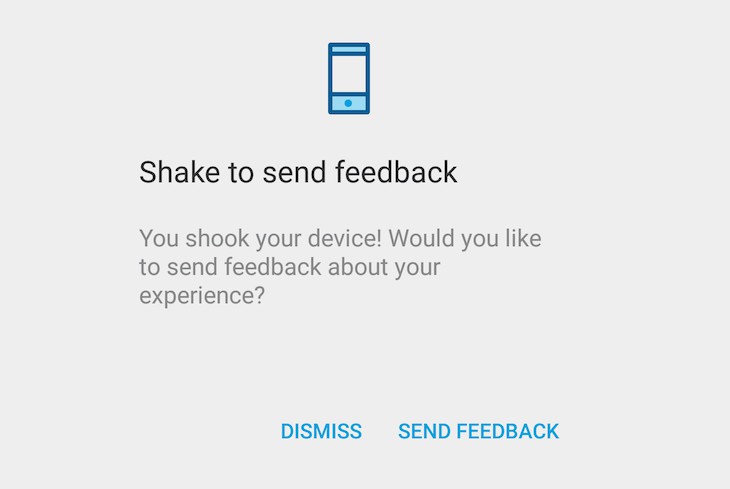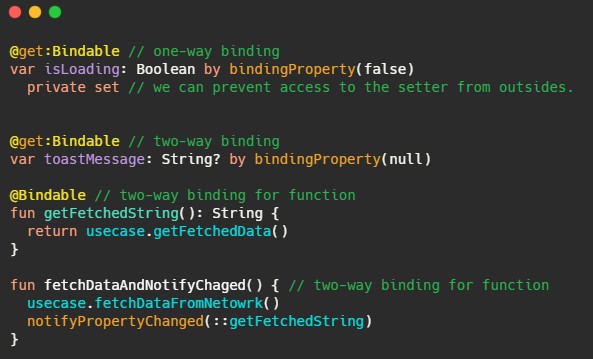Shaky
Shake-to-feedback plugin for Android.
Inspired by Google Maps' Shake to feedback and based on Square's
seismic.
Download
Download the latest .aar via Maven:
or Gradle:
implementation 'com.linkedin.shaky:shaky:3.0.1'
Getting Started
Add the following to your AndroidManifest.xml application tag:
Create the corresponding res/xml/filepaths.xml resource:
This allows files captured by Shaky to be shared with external apps. In this case, whatever app
picks up the email Intent. Note: you only need these xml permissions to share files with external apps. For more information see
FileProvider.
In your Application subclass:
For a complete example, see the demo app.
Advanced Usage
Your app can define custom behavior by subclassing
ShakeDelegate
and implementing the
void submit(Activity, FeedbackResult)
method (e.g. to send the data to a custom server endpoint).
In addition, you can implement the
Bundle collectData()
to collect extra app data including device logs, user data, etc. You will also need to handle how to send the extra data collected in your submit method.
If you want to programmatically trigger the feedback collection flow, rather than listening for shake events, you can call Shaky#startFeedbackFlow() on the
object returned by Shaky.with(). See the demo app for a full example of how to do this.
Snapshots
You can use snapshot builds to test the latest unreleased changes. A new snapshot is published
after every merge to the main branch by the Deploy Snapshot Github Action workflow.
Just add the Sonatype snapshot repository to your Gradle scripts:
You can find the latest snapshot version to use in the gradle.properties file.


